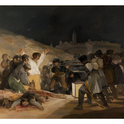Not long after I started working for Robin Cook as his special adviser in the foreign office, I accompanied him to Croatia. After a day in Zagreb, then emerging from the repressive Tudjman era, Robin pronounced himself at home in Croatia. I assumed he was referring to the new centre-left government, but he replied that, important as that was, he was actually talking about the fact that all the major politicians—including the president, Stipe Mesic, and the prime minister, Ivica Racan—sported beards.
No European foreign minister made as much of an impact on the Balkans as Robin Cook did between 1997 and 2001. I first met him in 1995 while I was serving with the hapless UN mission in Bosnia, at a time when John Major's government was refusing to confront the atrocities perpetrated by the Balkan hegemons Milosevic and Tudjman. From the Labour frontbench, Robin relentlessly harried first Douglas Hurd and then Malcolm Rifkind.
Appointed foreign secretary in 1997, Robin drew two lessons from the Bosnian war. First, that ethnic cleansing should never again be tolerated in the Balkans. Second, as he put it, "The era when the murderer of a single person could meet justice while the killer of 10,000 could walk free" had to come to an end. He was from the start a passionate supporter of the international criminal court, established at the Rome conference in 1998.
When Milosevic looked set to repeat in Kosovo the horrors of Bosnia, Robin moved swiftly in concert with Hubert Vedrine, the French foreign minister, to convene the Rambouillet conference in January 1999, an ill-fated but determined attempt to avoid war. When the conference failed, Robin reluctantly came to see Nato intervention as inevitable, despite the absence of a UN security council mandate. Not only did the Kosovo con-flict prevent another Bosnia, it led within 18 months to the ousting of Milosevic and his arraignment before the tribunal at The Hague. I recall the hours he spent at the Labour conference in 2000 telephoning our embassy in Belgrade as the crowds in the street called for Milosevic's downfall.
The Balkans were a recurring thread through Robin's ministerial career. Indeed, his last ministerial act before resigning over the Iraq war was to represent the British government at the funeral of the assassinated reformist Serbian prime minister, Zoran Djindjic, in March 2003. He was deeply moved by the acclaim he met from the international politicians assembled there, a recognition of the enduring mark he left on the region.












